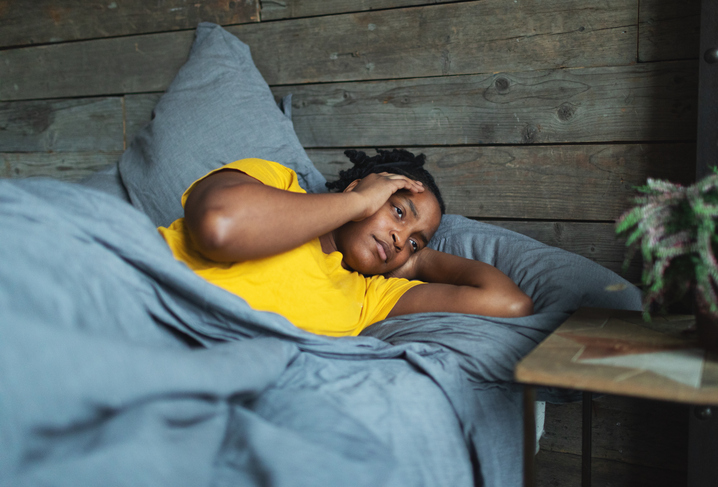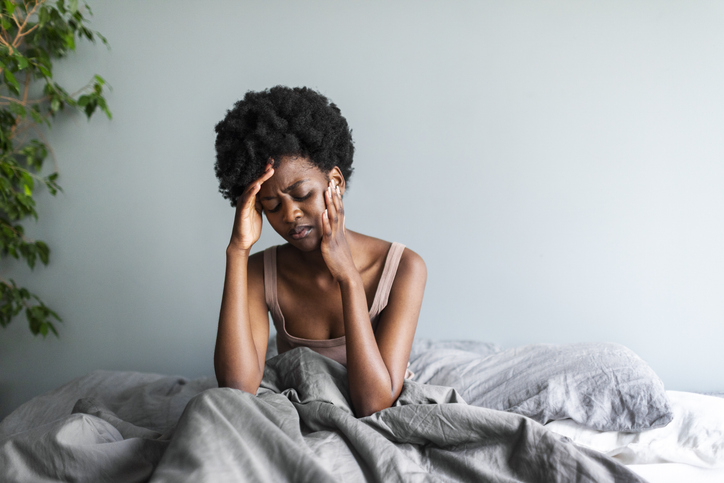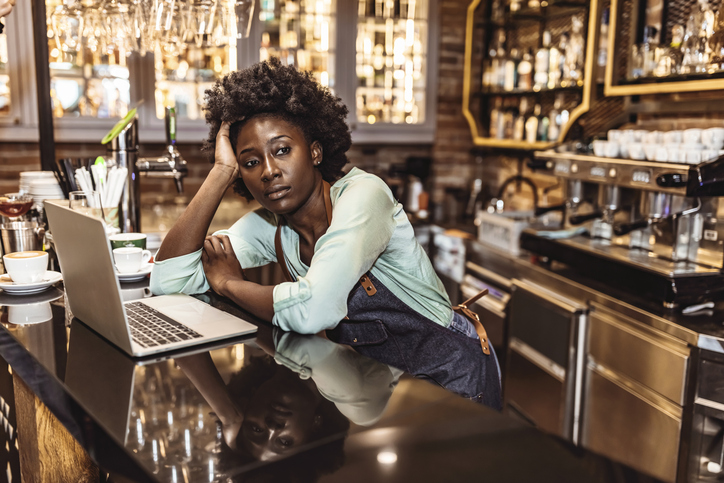Hangxiety? How To Cope After A Heavy Night Of Drinking
Have you ever felt anxious or worried after a heavy night of drinking? That feeling has a name: hangxiety. It’s a common post-drinking experience, where you might feel uneasy, depressed, irritable, or on edge, according to the Alcohol and Drug Foundation. Hangxiety often accompanies typical hangover symptoms like headaches, nausea, and difficulty concentrating.
About 12% of people have experienced this uncomfortable condition, Very Well Mind notes. So why does it happen to some more than others?

Source: JulPo / Getty
Decreased GABA and high Glutamate in the brain cause painful hangovers.
A hangover occurs when you consume more alcohol than your body can efficiently metabolize, disrupting the brain’s normal functioning. Alcohol affects the brain’s GABA (gamma-aminobutyric acid) receptors, which are responsible for calming neuronal activity. This is why alcohol initially makes you feel relaxed and more at ease. As you continue drinking, alcohol also inhibits glutamate, a neurotransmitter that typically makes you feel anxious, further enhancing feelings of calm and relaxation, according to the Alcohol and Drug Foundation.
However, once the effects of alcohol start to wear off, the brain works to restore its normal chemical balance. This causes a drop in GABA activity, reducing its calming effects, while simultaneously boosting glutamate, which activates overall brain activity. It’s like a spark plug trying to get all parts of the brain working again—except instead of restoring balance, it triggers heightened anxiety. This shift creates a feeling of unease, the opposite of the relaxed state you felt while drinking.

Source: JulPo / Getty
High cortisol levels can worsen hangxiety symptoms.
In addition to low GABA, hangovers also trigger an increase in cortisol levels, the body’s primary stress hormone, which elevates blood pressure and heart rate. These physiological changes contribute to the general feeling of discomfort and unease.
Cortisol plays a crucial role in regulating various systems in the body, including immune function, cognition, and emotions. Normally, cortisol levels rise during the second half of the night, peak in the early morning, and gradually decrease throughout the day, as noted by the American Addiction Centers. However, heavy drinking disrupts this cycle, causing cortisol levels to stay elevated and preventing them from declining as they should. The stress induced by alcohol and its withdrawal effects only exacerbate this imbalance, contributing further to the physical and emotional strain of a hangover.

Source: ljubaphoto / Getty
Dehydration doesn’t help either.
Additionally, alcohol is a diuretic, meaning it increases urine production, which leads to a loss of fluids and electrolytes vital for hydration. This dehydration can leave you feeling dizzy, tired, and more anxious.
Here are the drinks you should stay away from to avoid hangxiety.
If you’re looking to avoid hangxiety in the future, experts suggest staying away from certain alcoholic drinks like red wine, brandy, and whiskey. Neuropsychopharmacologist, Professor David Nutt, explained to the Telegraph that brandy and whiskey are aged in barrels, which give them a more complex flavor. This complexity leads to greater changes in the brain, making you feel more intoxicated even with smaller amounts of alcohol, resulting in worse hangovers and increased anxiety.
Professor Nutt also points out that red wine can be particularly problematic. It contains tyramine and histamines, naturally occurring compounds that can trigger anxiety. These compounds are biogenic amines, which, when consumed in large amounts, can cause adverse effects like blood pressure spikes, headaches, and nausea, according to Science Direct.
If you want to drink in moderation, consider opting for hard seltzers or beer.
Beer tends to be more filling than many other alcoholic beverages, which often leads people to drink less. Low-alcohol and non-alcoholic beers are also better choices for your mental well-being the next day.

woman drinking beer – Source: PJPhoto69 / Getty
Hard seltzers like White Claw and High Noon have gained popularity, partly because of their low calorie content, but also because they typically have less alcohol than spirits, encouraging more moderate consumption. According to a Bustle interview with Dr. Scott Braunstein, M.D., in February, hard seltzers are often lower in congeners—compounds that form during the fermentation process and contribute to the taste and aroma of alcoholic beverages.
These congeners are by-products of yeast fermenting sugars into alcohol, and they can affect both the flavor and the severity of a hangover. Lower levels of congeners may help reduce the intensity of hangover symptoms and lessen the risk of anxiety the following day.
For help cutting down on problem drinking, head over to the National Institute on Alcohol Abuse and Alcoholism.
RELATED CONTENT: There Still Isn’t A Cure For Hangovers — But Eat This To Ease The Pain








